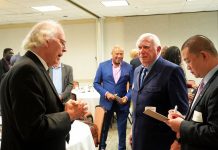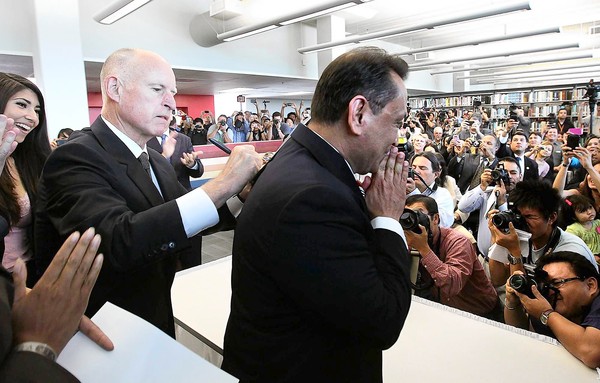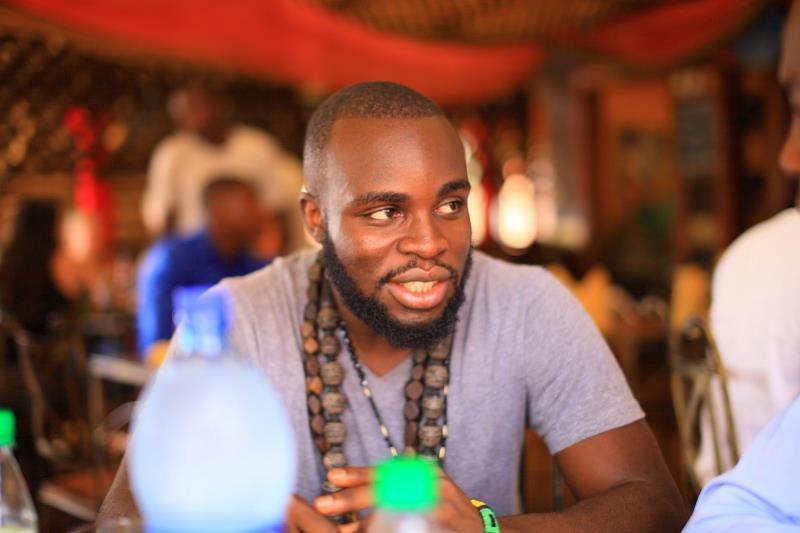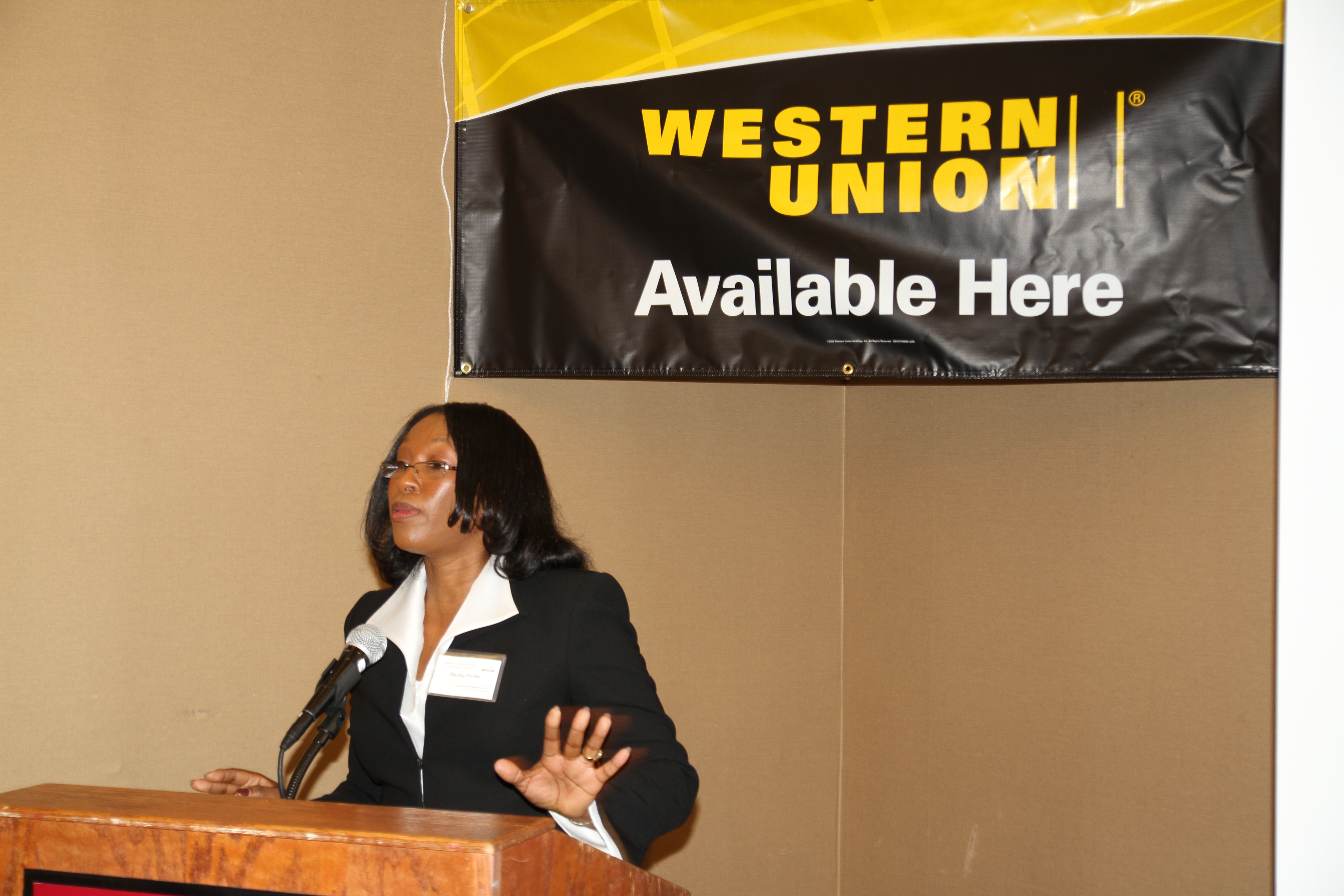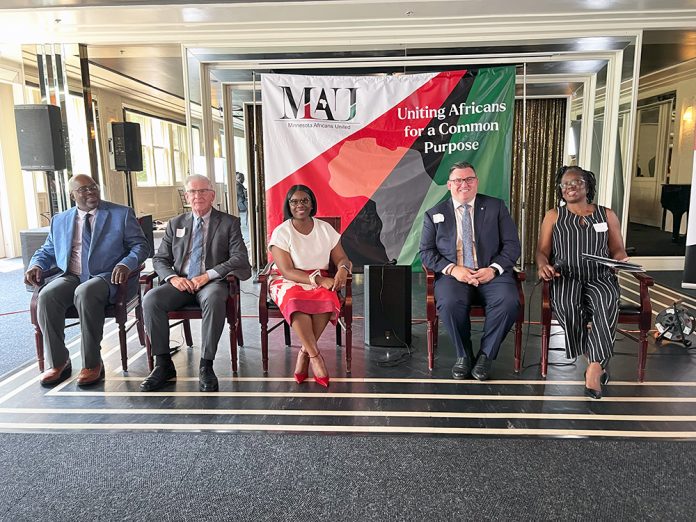

Despite the uncertainty the Trump administration’s trade policies have created, government officials, entrepreneurs, and business leaders of the African diaspora said there were still opportunities for trade and investments between Africa and the United States.
The leaders spoke at the United States-Africa Trade and Investment summit, which was held on Aug.1 in St. Paul by Minnesota Africans United (MAU). Steven J. Dickinson, the chair of international practice at the Minneapolis-based law firm, Avisen, encouraged attendees to build and strengthen genuine business relationships during uncertain times.
“These are difficult times, but these are times to take opportunity,” said Dickinson, who specializes in helping companies navigate the complexities of international business transactions.
Since President Donald J. Trump began his second term, the series of executive orders he has made have created a tumultuous and unpredictable environment in international trade. Trump’s tariff war, which he oftentimes wages on social media, has disrupted trade with all major global partners, including allies of the United States.
Trade between the United States and the African continent totaled $71 billion in 2024, with Egypt, South Africa, and Morocco being the top drivers, according to the Office of the United States Trade Representative, an arm of the Executive Office of the President. Precious metals and agricultural products are among the top products the United States imports from Africa while exporting American vehicles and machinery.
Despite the challenges, business and community leaders at the summit said there were still great opportunities for growth in trade and partnerships that are mutually to both the United States and African countries.
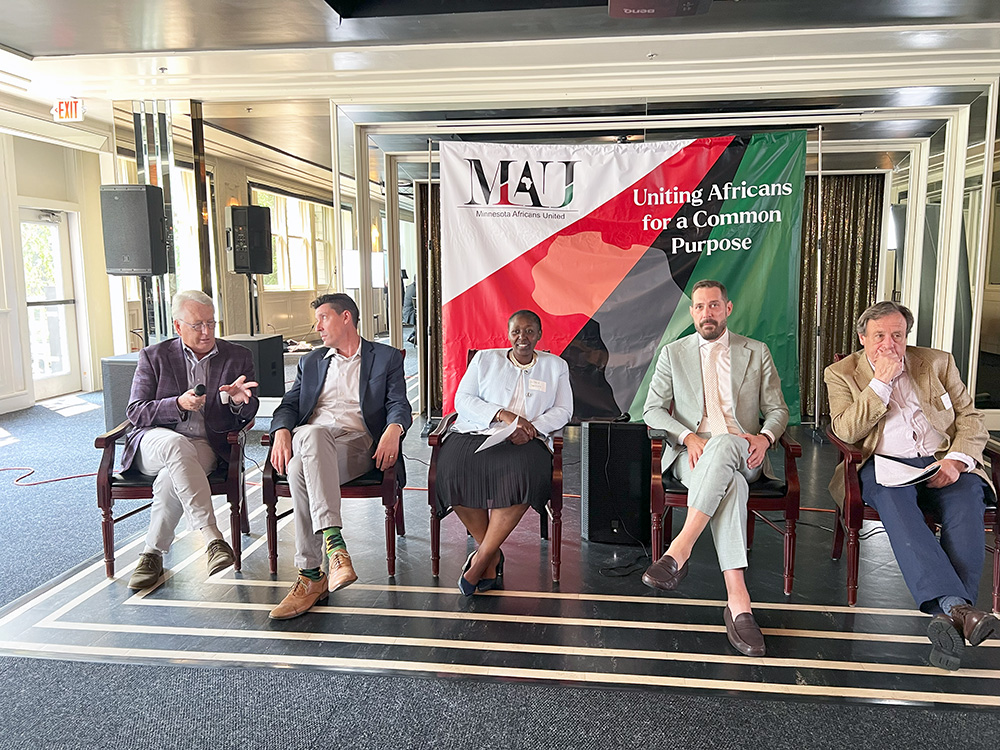
“Trade between the United States and Africa is still underexploited,” said Nelima Sitati Munene, the executive director of the African Career, Education and Resource, Inc., an organization founded in 2008 to connect African immigrants in the northern suburbs of Minneapolis to employment and other resources.
Bailey Rowell, a senior international trade specialist at the U.S. Commercial Service, an agency of the International Trade Administration at the U.S. Department of Commerce, said that there needed to be more open communication and discussions to discover more avenues of trade between the African continent and the United States.
“The more types of engagements we have, the more we are going to be able to meet these opportunities,” Rowell said.
For African-born entrepreneurs, launching a business in the United States can be a daunting task. They need to learn how to navigate financial systems and bureaucracies that are significantly different from those in their countries of origin. Challenges like these are what led to the founding of MAU in 2017 to serve as a place of education and empowerment for African entrepreneurs in communities in Minnesota. Individuals or businesses can enroll as members of the organization.
For Esther Obaigwa, when she was launching her healthcare staffing agency, Kare Healthcare, she struggled with finding funding. Obaigwa, who was born in Kenya, said she learned about MAU and enrolled in the classes the organization offers. She applied what she learned and was able to secure funding, which enabled her to pay all her employees and later expand her business. Obaigwa credits the success of her agency to resources secured from MAU.
“MAU is the backbone of my business,” she said.
Entrepreneurs who need funding to meet the demands of their businesses can apply for various loans and government grants. They include State Trade Extension Program (STEP) grants, which are match-based grants that help to offset the cost of business development to international markets.
About Cynthia Simba, Mshale Reporter
Cynthia is a graduate of the University of Minnesota School of Journalism. She has interned at Mshale and Voice of America and previously worked at the Minnesota Daily. She recently returned from Seoul, South Korea where she was an English educator.




